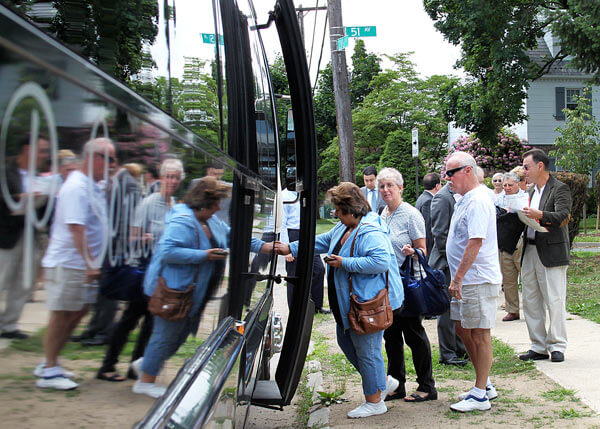By Rich Bockmann
Bayside Hills Civic Association President Michael Feiner said “you just can’t win” after the city Board of Standards and Appeals voted Tuesday to grant a variance he and the community had been protesting for months.
In March, Feiner along with City Councilman Dan Halloran (R-Whitestone), state Sen. Tony Avella (D-Bayside) and a number of homeowners gathered on the lawn of a corner lot, at 50-20 216th St., to rally against an application to put a second home on the property, which after being subdivided was not large enough to accommodate the city’s minimum setback requirements.
Community Board 11 voted unanimously to deny the variance and Borough President Helen Marshall spoke out against it as well. In the following months the community ramped up its opposition, including busing neighbors to the first BSA hearing in June to voice their concerns.
The board adjourned that meeting without a decision, and in the following months Feiner and his neighbors kept up their protest, mailing letters to the BSA and having their elected officials speak out on their behalf.
But all the efforts proved unsuccessful after the BSA made its decision. A spokesman for Halloran and Feiner said the BSA vote was unanimous in favor of granting the variance. The BSA did not disclose the vote other than to say it approved the variance.
“This is going to set a very, very, very bad precedent for the future,” Feiner said. “It’s really something. It’s a no-brainer that spot does not warrant another home.”
Feiner said he would like to hire a pro-bono lawyer to appeal the decision, considering the cost of an appeal
While the BSA waited to make its decision, Halloran introduced two bills in August he said would give the community more power to fight controversial decisions.
The first bill would give the community board and the borough president the power to appeal BSA variance decisions to the Council, which would set up a committee to hold a public hearing on appeals and then vote on the its recommendation.
The second bill would impose fines upon homeowners who either violate or fail to comply with BSA requirements or operate with an expired variance.
Halloran said there is presently no penalty to a property operating with an expired variance and maintained this is a “major loophole” that leaves both the community and community board virtually powerless.
The bill would fine property owners in violation of BSA requirements up to $250. It would also require the board to send out notices six months before a property’s variance expires. If the variance is not renewed, the homeowner would be fined $500 for every six-month period thereafter until a homeowner applies for an extension of the variance.
Feiner said the bills were the community’s last hope.
Halloran said he is gathering support for his bills and is optimistic about them.
“It’s time that this process was made fully transparent. My legislation empowers the City Council and community boards, who represent the taxpayers. No one knows who the BSA represents,” he said.
Reach reporter Rich Bockmann by e-mail at rbockmann@cnglocal.com or by phone at 718-260-4574.































